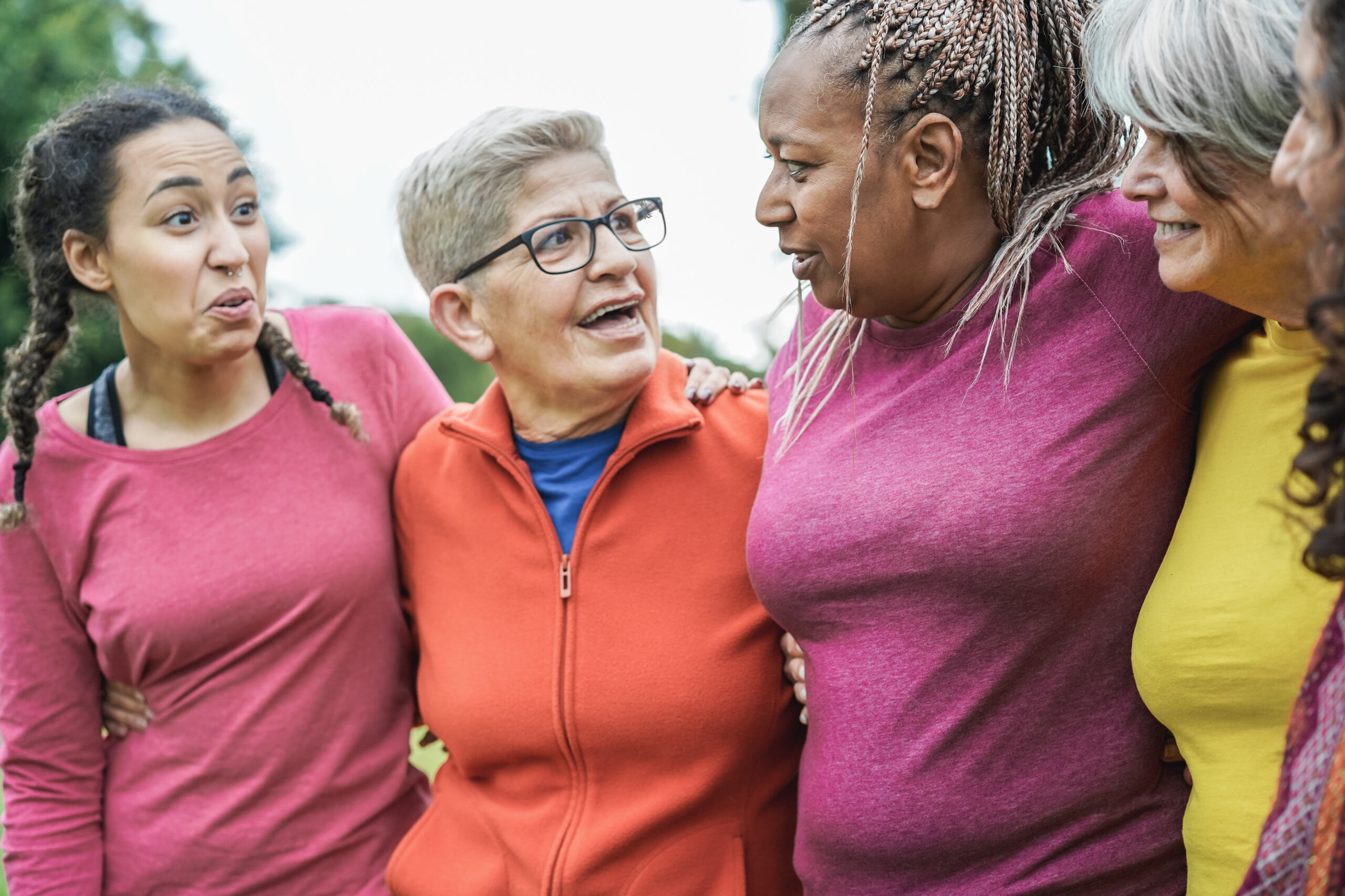
Age Well with WIHA
A newsletter from the Wisconsin Institute for Healthy Aging
Age Well with WIHA: July/August 2023
WIHA’s newsletter is published bi-monthly and sent by email. View the email newsletter online or read the full stories below. Don’t forget to subscribe!
10 Things to Know About Aging
And how to do it well
September is Healthy Aging month although staying healthy is a year-round endeavor! While your risk for illness or injury increases as you get older, there are steps you can take to stay healthy and strong!
Join us for a talk by Dr. Alexis Eastman from the University of Wisconsin-Madison School of Medicine and Public Health and learn more about the factors that influence your wellness as you get older. She discusses homeostenosis, muscles & bones, skin, bladder & bowel, medication side effects, vision, hearing, mood, memory, wisdom, & more!
In this Issue
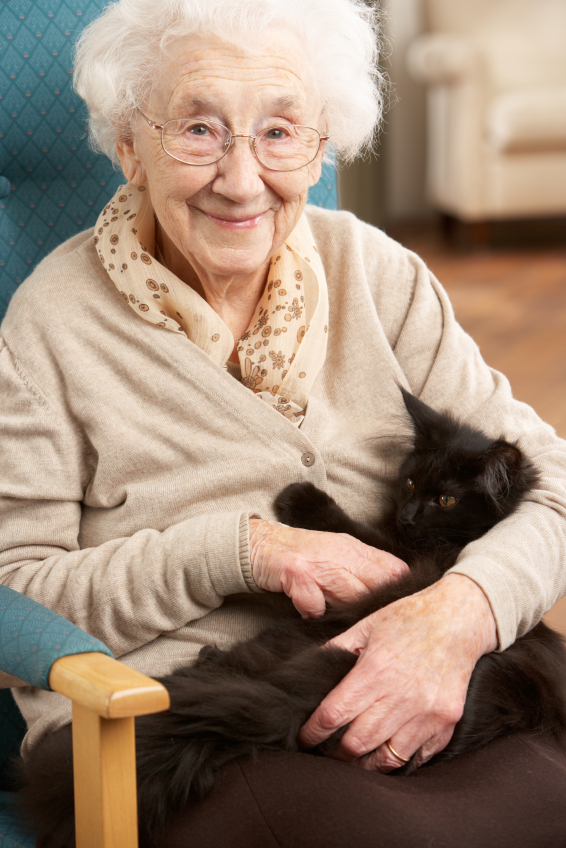
As we age, our body’s ability to keep everything balanced inside decreases. This makes it harder for us to recover from injuries and means we may get sicker from small bugs than we used to.
“Homeostenosis” is the reduced ability to maintain homeostasis.
Most people lose muscle and bone every year after the age of 30. This is because the body does not have as many cells to help build and repair muscle and bone. This can also lead to osteoporosis.
Exercise can help! Doing exercise tells the body to build more muscle and bone.
As we age, the layers of the skin change which causes looser, wrinklier skin. We can see “age spots” which are caused from the color cells of the skin changing. Lastly, we’re more likely to have drier and itchier skin because sweat and oil glands decrease in number.
However, you can still help your skin stay healthy at any age by staying well-hydrated, wearing sunscreen, using lotion, and stopping smoking (which causes additional thinning of the skin and increased brittleness of blood vessels).
The Bladder
Like other muscles in the body, the bladder gets weaker and stiffer with age. This includes the bladder itself, which holds and pushes out the pee, and also the little valves that keep pee from leaking out all of the time. Additionally, the bladder gets a little smaller with age, and has an increased tendency to have spasms, which may cause pee to leak out.
Men have an organ called the prostate. With age, the prostate starts to enlarge and this causes it to push against the urethra, which is the tube that empties the bladder. This pressure causes difficulty getting the urine stream started, slower urine stream, and incomplete emptying of the bladder.
The Bowels
The intestines are responsible for absorbing nutrients from the food you eat. As you get older, the intestines lose their ability to absorb these nutrients.
The large intestine is in charge of getting rid of food waste and re-absorbing the water you’ve used to digest your food. As you get older, you lose muscle and nerve cells in the colon. This makes it harder to know when you need to use the bathroom and can make it harder to use the bathroom (takes more straining to poop).
A Mind Over Matter program can help you prevent bladder and bowel incontinence.
One of the things many older people notice is that they are more prone to getting side effects from their medications. Some of this is related to how the body processes medications (how it’s used and digested).
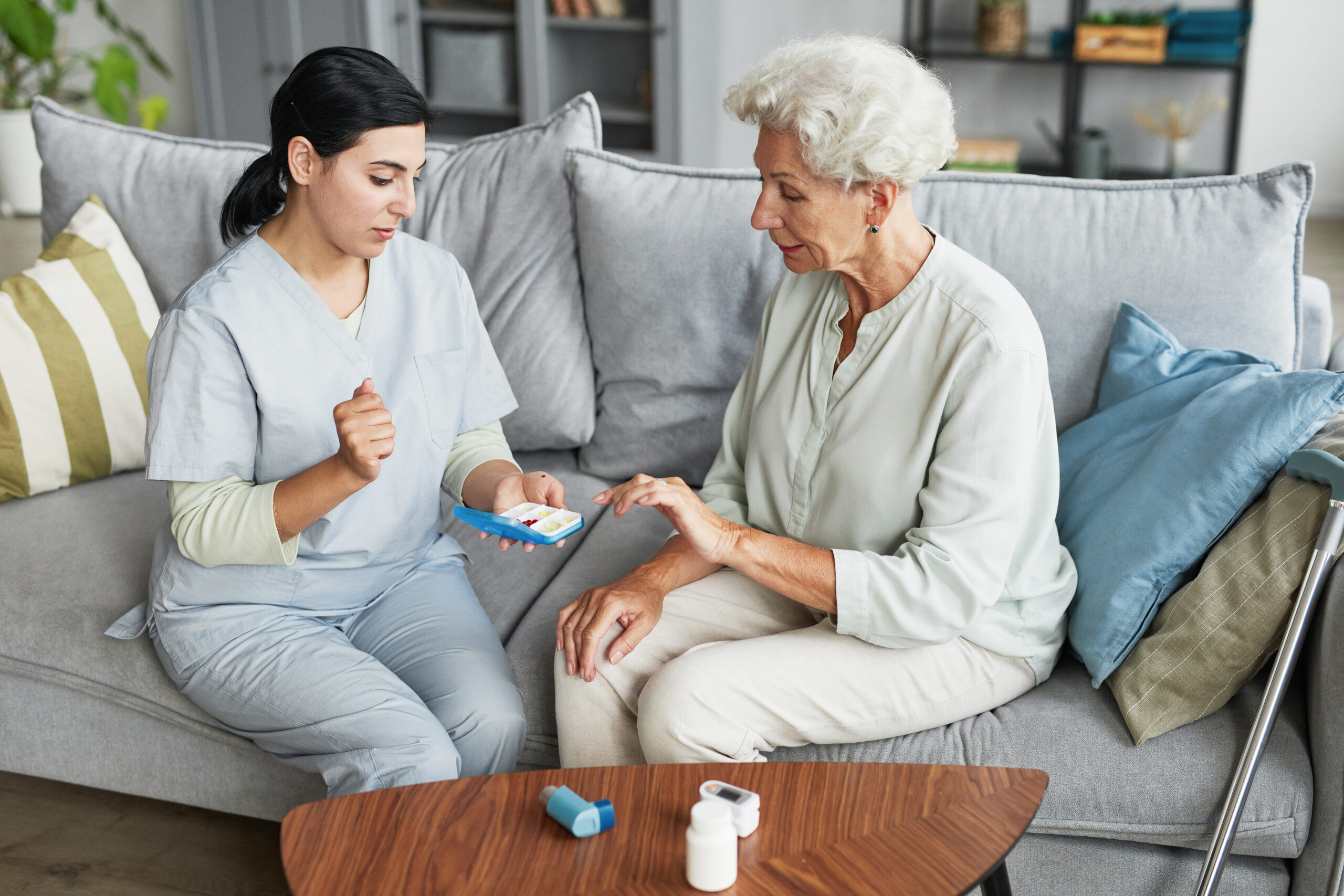
The kidneys help to break down medications in the body. You lose kidney cells with age, so by the time you’re in your 80s, you’ve lost 30-50% of your kidney cells. This means that your remaining kidney cells have to work harder to keep your kidney function normal. The liver is pretty tough, but even this starts to slow down with aging, so it can take longer to break down medications. This means that the effects of some medications will last longer.
It’s always a good idea to review your medications with your health care provider and ask the following questions:
The muscles in your eyes control the size of your pupil to determine how much light to let in. As you get older, you lose muscle strength in your eye (just like everywhere else). Pupils get smaller with age, and they have a harder time changing size. This means that most older people require more light to see well, and have a harder time changing focus from near objects to far away objects (and vice versa).
You might also experience an occasional “floater” in your vision which is a bit of protein in the fluid behind your eye.
Older people might also experience changes in the colors they see. They may not see as many variations of color, or may have a harder time seeing the contrast between colors.
Finally, as you age, you have more difficulty with depth perception (knowing how far away something is from you) and decreased peripheral vision (being able to see things to the left and right while looking straight).
See an optometrist annually for an eye exam!
Believe it or not, your ears actually do get bigger with age (and grow more hair)! This makes getting ear wax out harder, which can cause itching and hearing problems.
In addition, there are changes that happen to your ears with aging. The structure of the ear canal gets weaker inside the ear, so the canals get smaller. The tube that drains the excess fluid from your ear to your nose (the eustachian tube) can collapse more easily. This makes it more likely to have “plugged up ears” from allergies or a cold.
There are also changes that can affect your hearing. The ear drum and hair cells are what helps you to hear. These can be damaged by loud noises or poor blood flow so often as we age, we lose many of them.
The inner ear also helps control balance. Just like in the eye, the fluid in the inner ear can get little protein crystals in it that may cause dizziness and/or loss of balance. Talk to your doctor to learn more!
It sometimes feels like aging causes everyone to feel sad and depressed and this is just what you should expect. Fortunately, this is not true! There are some normal mood changes with age. It’s important to allow yourself to grieve when needed during aging. It’s also common to have a harder time with change.
However, depression is not part of normal aging. Often, an older person who has depression doesn’t feel “sad”. Instead, they might feel more anxious or irritable (or grouchy), lose interest in activities, lose interest in eating, not be able to sleep, not be able to concentrate, be too exhausted to move, or develop strange pains that move around and have no clear cause or treatment. They may start neglecting themselves or losing weight. It can look a lot like dementia, as a person who can’t concentrate will appear to be forgetful. It’s important to get a good medical evaluation if you notice changes in yourself or someone you care about.
There are some normal changes to the brain with aging. You should expect occasional and temporary lapses in memory. For example, it’s completely normal to walk into a room and forget why you went there. It’s also completely normal to take a long time to remember a word or someone’s name, when something is at the “tip of the tongue”. It may take longer to learn a new skill or work your way through a problem. Multi-tasking also gets harder with age. However, the knowledge you have and your vocabulary should stay stable or increase with time. Thus, while it may take you longer to remember a fact, the fact should still be in your brain.
Dementia is not a normal part of aging. Dementia is the result of disease in the brain and may cause loss of memory, personality changes, and changes in the way we act.
There are lots of things you can do to reduce your risk of dementia. While you can’t make you’re risk zero, you can reduce your risk by up to 50%. Check out our next issue of AgeWell to learn more!
While there are many things that seem to be harder with aging, many studies show that older really can be wiser for many people. The aging brain is less prone to over-reacting and has an easier time putting events into context and determining what really matters.
Additionally, older people tend to be more compassionate and understanding and have a better ability to deal with uncertainty than younger people. Finally, older people are one of the key supports to our society and give more to charity and volunteer more than any other age group. Strong grandparent-grandchild relationships have been shown to decrease childhood mortality, improve grades, and decrease depression rates in both age groups. Therefore, while many things are harder with age, being older is important to everyone.
Listen to Dr. Alexis Eastman’s Wellness Talk to find out more about each of these topics!
Falls Free® Wisconsin
What do shoes, rugs, and glasses have in common?
They’re all things that can impact your risk of falling! According to the Centers for Disease Control and Prevention (CDC), more than one in four older adults falls each year. That is why, as we gear up for Falls Prevention Month in Wisconsin, we are excited to launch a new resource that gives older adults and their families the information and tools to prevent a fall – fallsfreewi.org. Falls Free® Wisconsin is a one-stop-shop where you’ll find all sorts of information, helpful tips, and printable handouts about:
- Proper footwear – what to avoid and features that make a shoe safe
- Assistive devices – which ones may help improve safety at home and in the community
- Vision – and how it impacts falls risk
- Medications – how to manage them safely
- Hearing loss and other ear-related health concerns
- Home environment – what things in your home can lead to a fall and how to reduce your risk at home
- Balance and strength – how exercise can help reduce falls
- And more!
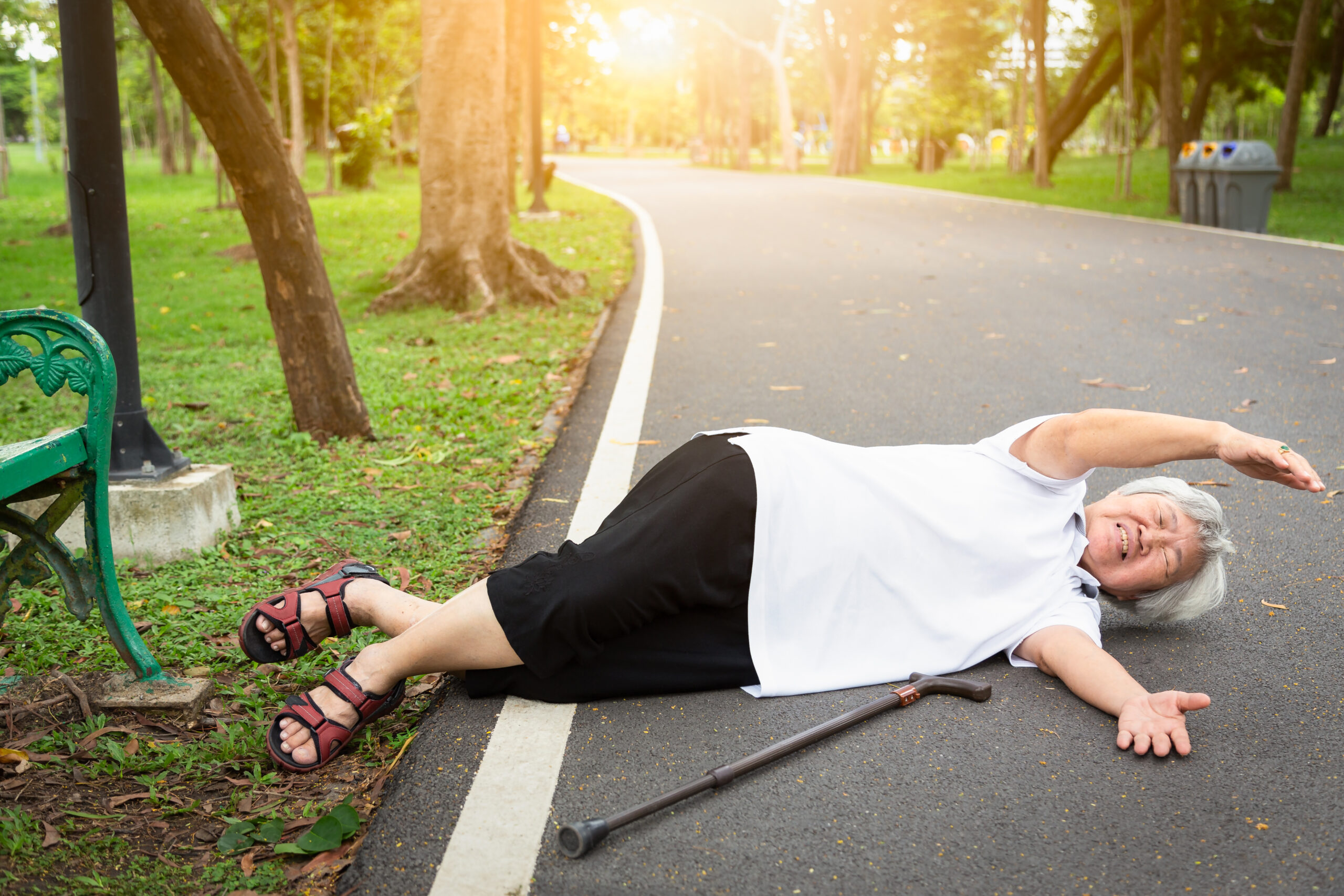
When you visit fallsfreewi.org, you can take the Falls Free Check Up to determine your own falls risk, learn the steps to reduce that risk and strategies to stay safe and independent in your home. With videos, interactive quizzes, a home safety tour, stories from Wisconsinites who have fallen, handouts, helpful links, and more, Falls Free Wisconsin is a one-stop shop for falls prevention!
You have a big role to play in reducing your risk for falls. Falls Free Wisconsin can help.
Featured Program: Stepping On
Stepping On is a fun, interactive workshop designed to help prevent falls. A trained facilitator leads the 7-session (2 hours per session) workshop that meets every week. Participants learn balance and strength exercises; discuss the many factors that can cause a fall including vision, footwear, and home hazards; and hear from guest experts such as pharmacists and physical therapists who attend the sessions and answer questions.
Research: Stepping On is researched and shown to decrease falls by 31%! Fewer falls means fewer injuries, fewer visits to the emergency room, fewer hospitalizations, and fewer deaths due to falls.
Who is it for: Stepping On is designed for older adults that live independently, don’t use a walker indoors, don’t use a wheelchair, and are without a diagnosed cognitive impairment.
How to participate: You can participate in Stepping On in-person or virtually. Find a workshop near you.
“The class made us so much more aware of our surroundings, both outside and inside, things you could do to improve your balance, take your time and not rush things, and learn about the hazards you don’t always think about. It highlighted the issues that you start to realize you don’t want to take for granted because in that split second, you could fall.”
Jim & Sue
Wisconsin
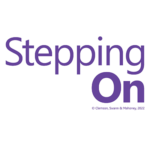
Find a Workshop
Take charge of your health by taking a WIHA workshop. We offer in-person and virtual (online or by phone) programs that give you the tools to age well. Getting started is easy – simply click the link below.
Enjoyed the newsletter? Subscribe today!
